
Sunsets, Saffron and Serenity Tour Kashmir India
Jamia Masjid Srinagar Kashmir
Mother Masala Tours
378 Ancient Pillars
Jamia Masjid Srinagar Kashmir. Known locally as the "Friday Mosque," encompassing both a peaceful atmosphere and historical significance. Constructed in 1400 CE by Sultan Sikandar, who belonged to the Shah Mir Dynasty, the mosque reflects the Islamic architectural styles prominent during the early years of Islam’s influence in the region. A Unesco World heritage Site. This period marked the transition of Kashmir from its Hindu roots, under rulers like Lalitaditya, towards a cultural identity shaped significantly by Islamic thought and artistry. Sultan Sikandar, considered a pivotal figure in the establishment of Islamic rule in Kashmir, commissioned the mosque to strengthen the communal ties among his subjects and provide a space for collective worship.
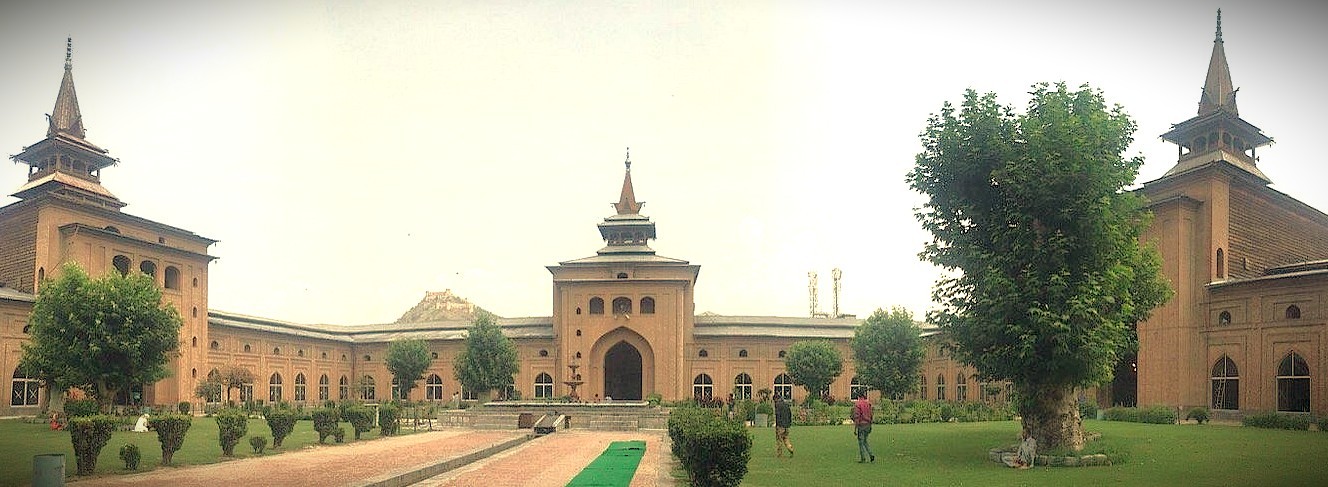
Jamia Masjid Srinagar Kashmir: Sacred Spaces
The Jamia Masjid is renowned for its profound sense of tranquility and its architectural significance, which is deeply rooted in local history. This impressive structure is home to several unique artifacts, including intricate wooden carvings and ancient scripts that beautifully adorn its walls. These artistic elements showcase the rich Crafts and Folk Arts that led to Srinagar’s Unesco Creative City recognition.
Ancient Mosaics: Impeccable Craftsmanship
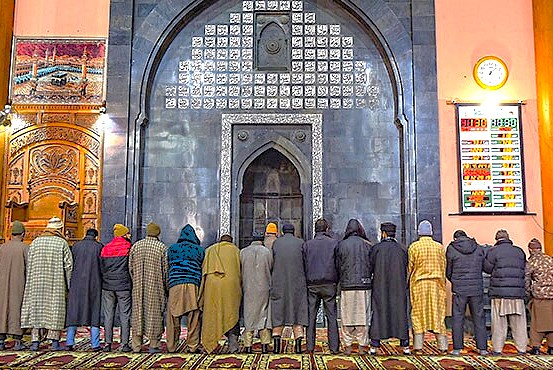
The craftsmanship seen at the mosque is a testament to the skilled artisans of Kashmir. Designed by Persian architect Mohammad Hamid, the structure embodies a blend of Persian and Indian design elements that emerged during the era of Sultan Sikandar. The distinct use of wood without any metal fastenings exemplifies the ingenuity of Kashmiri builders. Historical records indicate that the intricate woodwork, complete with impressive floral motifs, was created in the early 15th century and remains as a hallmark of the region’s artistic legacy.
The Pulse of the Local Community
The locals are known for their welcoming nature and deep-rooted connection to their heritage. Hospitality is paramount in this community, where friendliness envelopes each encounter. This spirit of warmth fosters an environment where we can easily engage with the cultural dialogue surrounding the mosque. As a central point for communal activities, this edifice not only serves spiritual needs but also strengthens the bonds among its residents, promoting a sense of unity and shared identity.
Capturing the Magic: A Photographic Haven

This historic location offers a stunning and unparalleled opportunity for photography enthusiasts. The incredible interplay of natural light filtering through the beautifully crafted wooden beams and the serene, expansive courtyard creates an inherently picturesque setting. The mosque's unique architecture and tranquil atmosphere offer a rich canvas of textures and shadow. Each angle reveals deep layers of history and culture, making the site an exceptional backdrop for any camera lens. Visiting here is an invitation to capture compelling memories and powerful images that resonate vividly with the peaceful spiritual and artistic spirit of Kashmir.
A Culinary Journey: Savor the Flavour
Jamia Masjid Srinagar Kashmir. Among the local specialties, traditional Kashmiri cuisine can be found nearby. Dishes such as Rogan Josh, Yakhni, and Kashmiri Pulao are often enjoyed after prayers. The unique combination of spices and ingredients reflects the region’s culinary tradition, with no meal being complete without a cup of fragrant Kahwa, a herbal tea typically infused with saffron and cardamom. The aromatic flavors of these dishes tell their own stories and enhance the overall cultural experience.
The Connection with the Gods
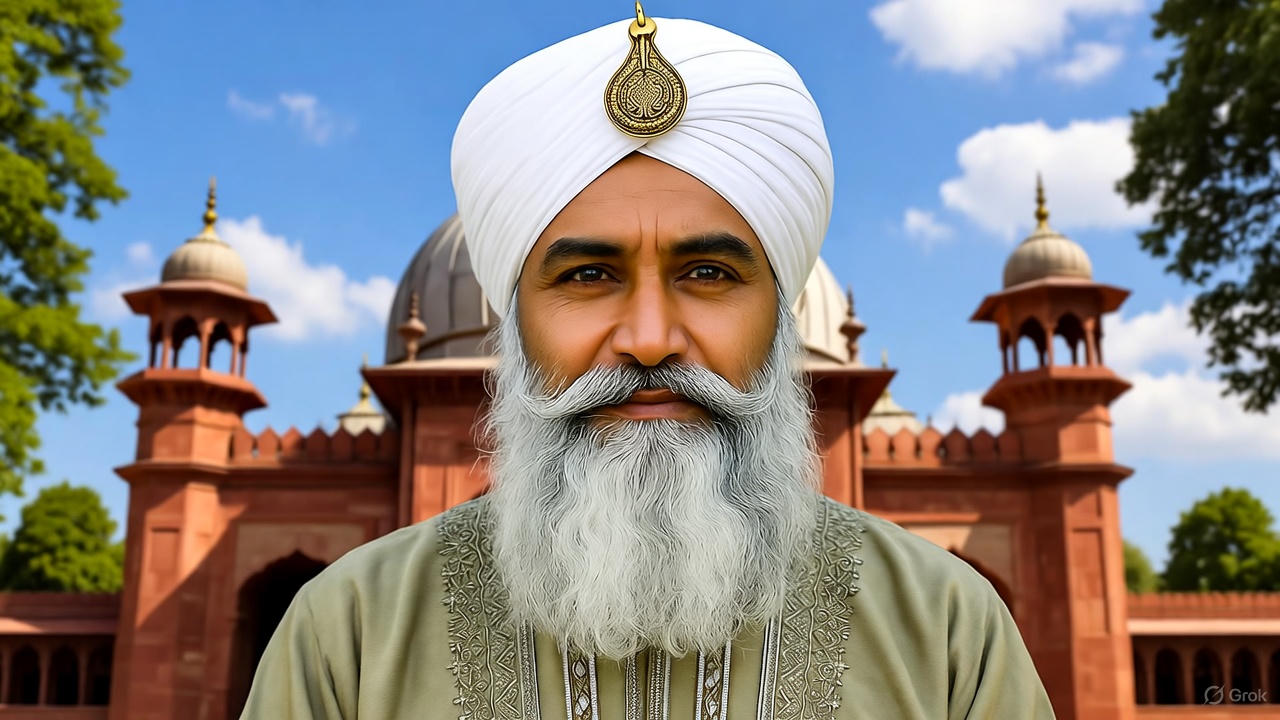
This place of worship deeply reverberates with stories of divine connection and spiritual heritage. Central to its local lore is the memory of Hazrat Bulbul Shah, a profoundly revered Sufi saint whose divine spirit is widely believed to bless and protect the mosque and its congregation. The mosque stands near the shrine of this historical figure, underscoring his lasting religious influence. His peaceful teachings and his role in introducing Sufism continue to inspire deep faith and devotion among the locals.
Ancient Technologies: Sacred Sound, Geometry & Astrological Influences
Jamia Masjid Srinagar Kashmir. The layout of the mosque exemplifies ancient sacred geometry, designed to align with certain celestial bodies. The placement of its prayer hall is meticulously calculated to ensure that worshippers face towards Mecca, highlighting the understanding of geometry in Islamic design. The use of local wood provides acoustic properties that enhance the sound of prayers and calls to worship, creating a serene auditory landscape that promotes spiritual reflection.
Serendipitous Meetings: Beyond the Main Path
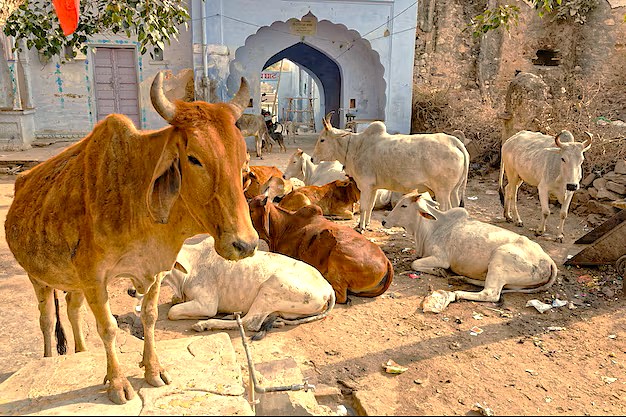
As we walk around the streets nearby, the atmosphere immediately immerses us in the local texture of life. We often stumble upon small artisan shops where skilled craftspeople are actively creating traditional Kashmiri goods. Witnessing the meticulous dedication of these locals, we see them skillfully weave fine Pashmina shawls or carve intricate wooden masterpieces. These encounters instantly reveal the city's rich artistic culture and the depth of its heritage, allowing us to truly appreciate the creativity and dedication of these artisans.
Festivals of Devotion: Honouring the Sacred and the Divine
The mosque serves as a focal point during significant Islamic festivals, such as Eid and Ramadan. These occasions draw crowds of worshippers who gather to perform prayers and engage in charitable activities. For instance, during Eid al-Fitr, people from neighborhoods come together to celebrate, sharing meals and exchanging greetings, reinforcing social ties among the community. The festive atmosphere transforms the mosque into a vibrant hub of spirituality and camaraderie.
Resilience and Renewal: Overcoming Adversity’s Challenges
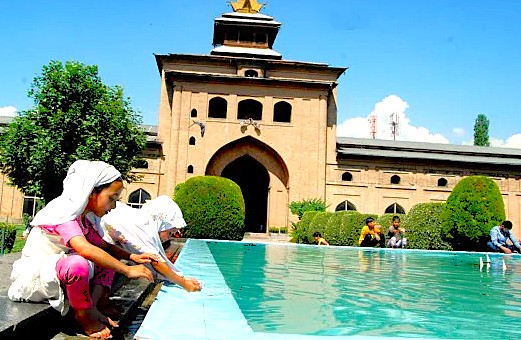
This revered mosque has demonstrably weathered numerous challenges throughout its long and storied history. Notably, the structure suffered significant damage during a major fire in 1674, which consumed a large portion of its unique wooden architecture. However, this adversity became a profound testament to the enduring spirit of the Kashmiri people. The collective efforts of the local community and ruling patrons immediately led to an extensive and committed restoration and rebuilding campaign.
Urban Legends: Strange Sightings, Myths and Mysteries
Local legends surrounding the mosque include tales of hidden treasures and mysterious occurrences. One popular story speaks of a secret chamber that is said to contain ancient manuscripts protected by mystical forces. Curious onlookers often share anecdotes of strange sounds or fleeting shadows within the mosque, adding an element of intrigue to its rich historical narrative.
No Passport, No Problem - Just Kidding, Find It Now

Join us on a truly wonderful journey to explore the profound spiritual and cultural depth of the Jamia Masjid Srinagar. This experience is an invitation to move beyond simple sightseeing and achieve deeper immersion. We will wander through its majestic grand halls, studying the unique architecture, which includes the iconic 370+ Deodar wood pillars. We will take time to immerse ourselves in the local community’s stories, appreciating the history of Sufi saints and the resilience shown during periods of rebuilding after fires. This journey is designed to celebrate the powerful history that this landmark represents.
Symphony of Generosity: Offerings from Wanderers to Residents
The interaction between the local community and those who come to explore fosters goodwill and cultural exchange. Every interaction provides an opportunity for us to share knowledge and stories. This connection benefits both sides, as we gain insights into Kashmiri life while supporting local artisans and businesses that thrive from this cultural interplay.
Step Inside The Story - View All Tour Itineraries & Details
We’re here to offer genuine, thoughtful guidance for your travels. As a small, dedicated team, we pay close attention to every detail so you can focus on enjoying the experience while we take care of the planning. We believe the best trips begin when someone truly listens to what you want and how you like to travel, so the journey feels right for you and contributes to a happy, positive group on tour. Our communication stays clear, straightforward, and respectful at every step, with the goal of helping you feel understood, supported, and confident from first contact to the end of your journey. Click here:- Discover Life Travel - India Tour Specialists